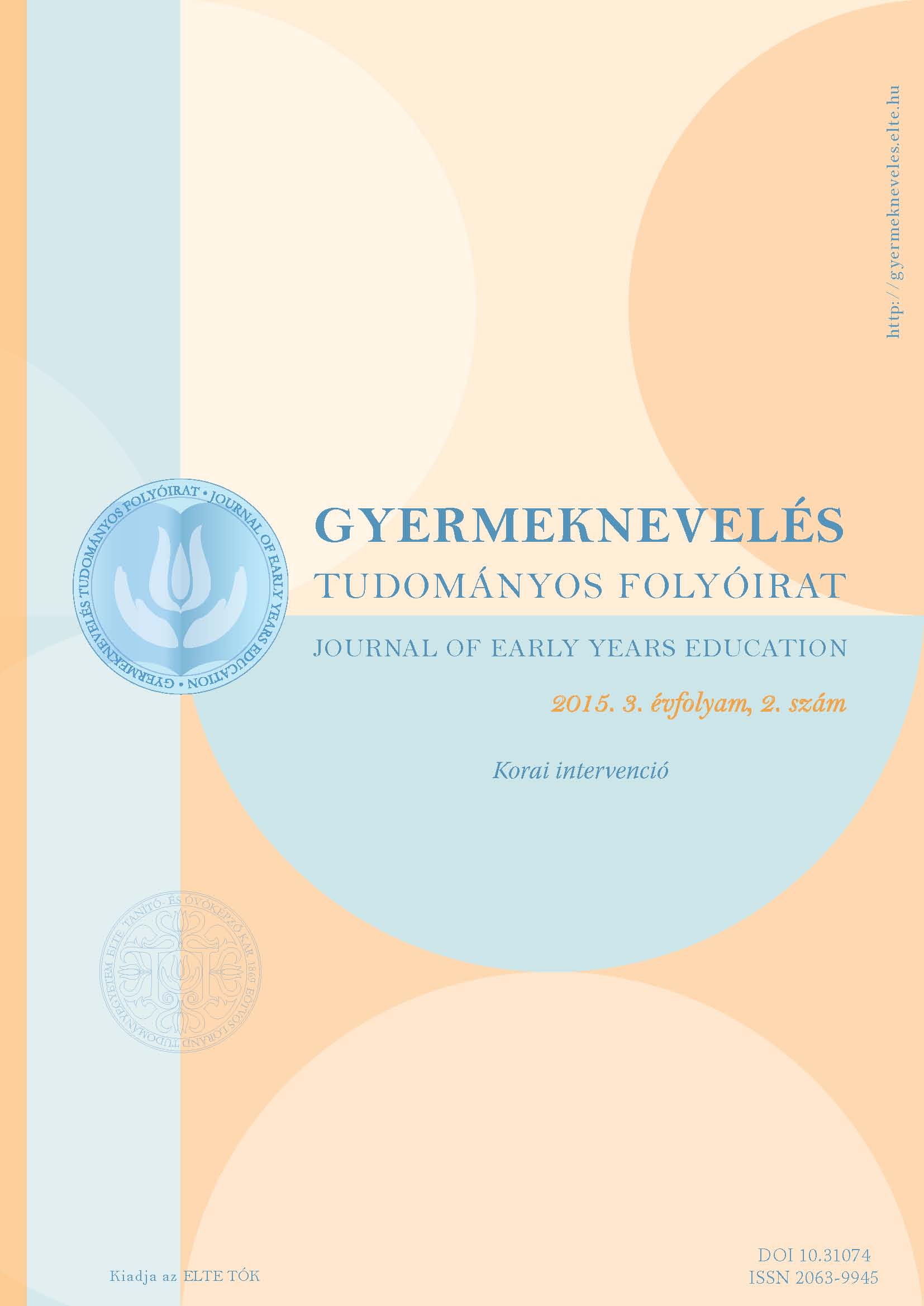A SEED Fejlődési Skála mint a 0–4 éves korú gyermekek egyik vizsgáló eljárása az eltérő fejlődésmenet diagnosztikájában
DOI:
https://doi.org/10.31074/gyntf.2015.2.104.112Kulcsszavak:
kora gyermekkori intervenció, fejlődési vizsgálatok, fejlődési skála, SEED Fejlődési Skála, eltérő fejlődésmenetAbsztrakt
A SEED Fejlődési Skála (Sewall Early Educational Development Scale) 0–4 éves korig méri a csecsemők és a gyermekek adaptációs, pszichomotoros képességeit. A Skála alkotói több intelligencia teszt résztesztjeit, feladatait alkalmazták egy fejlődési skálában annak érdekében, hogy a gyermekek képességeit körvonalazni tudják a korosztályuknak megfelelően, erősségeiket és gyengébb képességeiket is feltérképezzék, ezzel meghatározva a fejlettségi szintet, valamint a képességeik struktúráját. Mindezt elsősorban azért tették, hogy a megvizsgált, és eltérő fejlettségi szinten teljesítő gyermekek fejlesztésének irányvonalát, hangsúlyait a lehető legpontosabban körvonalazni tudják, valamint, hogy a gyermekek későbbi fejlődésmenetének nyomon követése is biztosított legyen ezzel a vizsgáló metódussal.
A skála eszközkészlete és feladatrendszere lehetővé teszi a gyermekek spontán tevékenységének megfigyelését, így a vizsgálati helyzetben olyan gyermekek esetén is eredményt kapunk fejlettségi szintjükről, akiknél bármilyen okból kifolyólag (figyelemzavar, magatartási problémák, értelmi elmaradásból adódó alacsonyabb szintű feladattartás stb.) az együttműködés nehezített:
A Skála elsősorban a fejlettségi szint megállapítása mellett segíti a fejlesztési lehetőségek, azok irányvonalának megfogalmazását, így a beavatkozás szakszerűen, időben, a gyermek együttműködési készségétől függetlenül elkezdődhet. Értékelési rendszere fejlettségi kort határoz meg, ill. az elmaradás mértékét.
Letöltések
##submission.downloads##
Megjelent
Hogyan kell idézni
Folyóiratszám
Rovat
License
Copyright (c) 2015 Szerző

This work is licensed under a Creative Commons Attribution-NonCommercial-ShareAlike 4.0 International License.

